The document discusses internet research ethics as outlined by Rebecca Ferguson, emphasizing key principles such as autonomy, beneficence, and justice. It addresses various ethical considerations, including informed consent, privacy, and the responsibilities of researchers when interacting with online communities. The content raises questions regarding the implications of anonymity, ownership of digital content, and the need for ongoing dialogue in ethical practices.

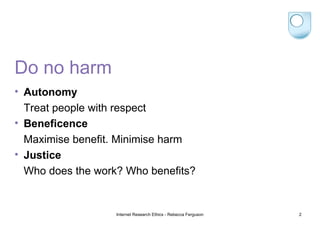

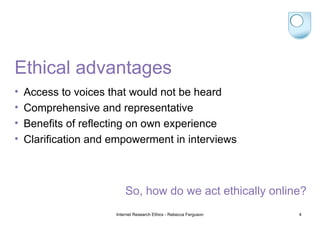
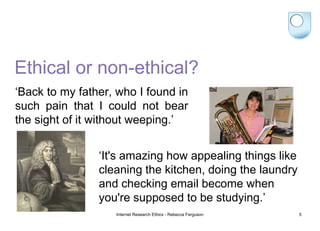
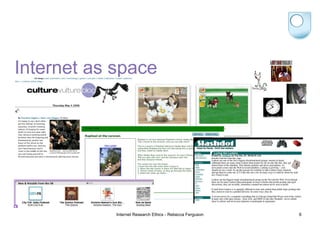
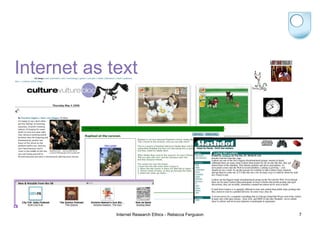
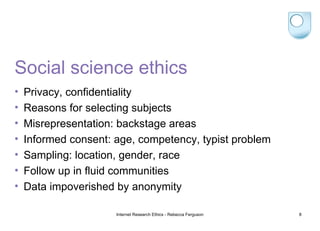
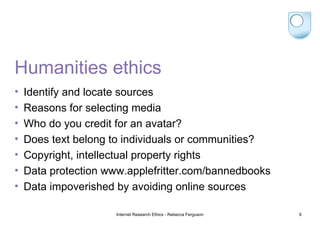
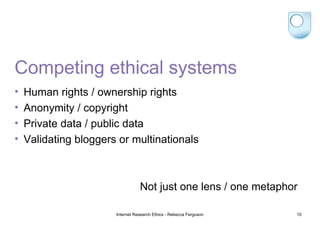
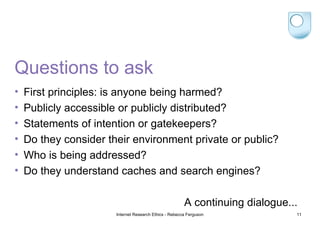
![Rebecca Ferguson IET, The Open University Walton Hall Milton Keynes MK7 6AA [email_address]](https://image.slidesharecdn.com/researchethics-100312054347-phpapp01/85/Internet-research-ethics-12-320.jpg)